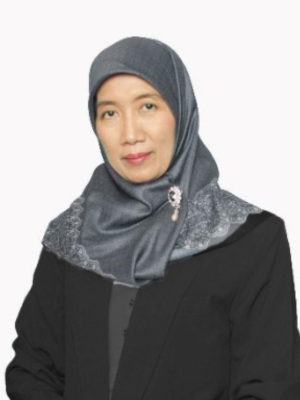Studi Komparatif Motivasi dan Prestasi Belajar Taruna AAL Ditinjau dari Pilihan Korps Untuk Mewujudkan World Class Navy
Downloads
The interest of cadets is one of the considerations to determine their Service Corps while studying in the Naval Academy; though, it bears the least point compared among other aspects. Based on some views of educational experts, interest is a motivational tool that can arouse the excitement of learning. Hypothetically, cadets who have good motivation to learn are feasibly able to get better achievement. The author carried out the study to find out the distinction of motivation and learning achievement between cadets with the corps of their interests and those whose corps are not on their interests: the influencing factors upon motivation and learning achievement; and simulation of dynamic system of motivation and achievement with the samples of 4th-grader Cadets of 62 in Indonesian Naval Academy. By using the results of independent t-test with a value greater than 0.05. apparently there is no significant differences of motivation and learning achievement among the cadets with different corps in relevance with their interests. Then based on the descriptive analysis, factors that influence the motivation and learning achievement are: the instructors and the cadres, teaching materials, teaching and learning facilities and learning social environment with the average point of 84.25% of satisfaction level. The result from the dynamic system simulation model tells that the respondents who have very good level of interest and are supported optimally by the influencing factors, are able to achieve GPA 3.6. It proves that interest, motivation and influencing factors come in linear to better achievement among cadets. Therefore, it is necessary to conduct regular and organized evaluation toward learning factors for optimal learning achievement of cadets.
___2009.Peraturan Kasal nomor Perkasal/72/IX/2009 tanggal 29 September 2009 tentang Penentuan Korpss bagi Kadet AAL.
___2010.Peraturan Kepala Staf Angkatan Laut nomor: Perkasal/ 85/XII/2010 tanggal 22 Desember 2010 tentangPetunjuk Pelaksanaan Evaluasi Hasil Belajar KadetAkademi Tni Angkatan Laut.
__2014. Akademi Angkatan Laut Kelas Dunia. Surabaya: Akademi TNI Angkatan Laut.
___ 2016.Naskah Penelitian Balitbang Kemhan tentang akseptabilitas bela negara pada Kader Bela Negara di
Lingkungan Pendidikan, Lingkungan Pekerjaan dan Lingkungan Permukiman yang telah mengikuti Pembinaan Kesadaran Bela Negara (PKBN), pada 5 (lima) wilayah yang menjadi lokus penelitian
Creswell, J. (2015). Riset Pendidikan (Perencanaan, Pelaksanaan dan Evaluasi Riset Kualitaitf dan Kuantitatif). Yogyakarta: Pustaka pelajar.
Hamalik, O. 2009.Proses Belajar Mengajar. Jakarta: Bumi Aksara.
Jhon D. Sterman. 2000. Systems Thinking and Modeling for Complex World. U.S.A. : Massachusetts Institute of Technology Sloan School of Management
Keller, J.M & Katsuaki S. 2004. Learner and E-learning Design : A Multinationally Validated Process. Journal of Educational Media.(Online). 29 (3) : (229-238). (http://pantherfile.uwm.edu), diakses 10 Februari 2017.
Slameto, 1995. Belajar dan Faktor-Faktor Yang Mempengaruhinya. Jakarta: PT. Rineka Cipta.
Sudjana, N. (1990). Penilaian Hasil Proses Belajar Mengajar.Bandung: PT. Remaja Rosdakarya Offset.
Syaiful Bahri Djamarah, 2002. Psikologi Belajar. Jakarta: Rineka Cipta
Sugiyono, 2014.Metode Penelitian Kombinasi (Mixed Methods). Bandung: Alfabeta
Tim Penyusun Kamus Pusat Bahasa.2008. Kamus Bahasa Indonesia. Jakarta: Pusat Bahasa
User, U.M. 2001.Menjadi Guru Profesional.Bandung: Remaja Rosdakarya
Wina Sanjaya. 2008. Perencanaan dan Desain Sistem Pembelajaran. Jakarta: Kencana Prenada Media Group.
https://suaranuraniguru.wordpress.com/2011/12/01/minat-dalam-belajar-siswa. Diakses tanggal 04-02-2017
Arifuddin.2009, hubungan Antara Motivasi Dengan Prestasi Belajar Siswa Pada Mata Pelajaran Geografi di Kelas XI IPS SMA Negeri 2 Singaraja.
Sudjati Jantri, 2014. Peningkatan Motivasi dan Hasil Belajar Siswa Melalui Pembelajaran Kooperatif Simultaneous Roundtable pada Mata Pelajaran Sosiologi.Tesis S2 Universitas Negeri Malang.
1. Copyright of this journal is possession of Editorial Board and Journal Manager, by the knowledge of the author, while the moral right of the publication belongs to the author.
2. The formal legal aspect of journal publication accessibility refers to a Creative Commons Attribution-NonCommercial-ShareAlike 4.0 International License (CC BY-NC-SA).
3. All publications (printed/electronic) is open access for educational purposes, research, and library. Other than the aims mentioned above, the editorial board is not responsible for copyright violation.









